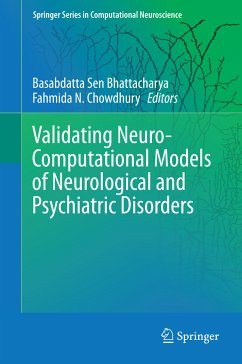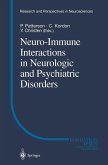Validation is essential for neuro-inspired computational models to become useful tools in the understanding and treatment of disease conditions. Currently, the immense diversity in neuro-computational modelling approaches for investigating brain diseases has created the need for a structured and coordinated approach to benchmark and standardise validation methods and techniques in this field of research. This book serves as a step towards a systematic approach to validation of neuro-computational models used for studying brain diseases, and should be useful for all neuro-computational modellers.
Dieser Download kann aus rechtlichen Gründen nur mit Rechnungsadresse in A, B, BG, CY, CZ, D, DK, EW, E, FIN, F, GR, HR, H, IRL, I, LT, L, LR, M, NL, PL, P, R, S, SLO, SK ausgeliefert werden.









